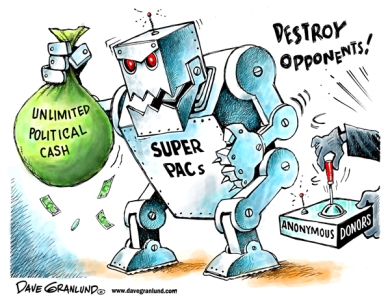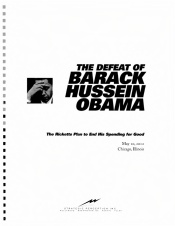Over the course of the trimester we spent a lot of time discussing elections. We covered many topics pertaining to the elections process including the Electoral College system, Electoral Strategy, Money and Elections, Voter Participation, and Campaign Commercials. Of all the topics, the one most striking to me was voter participation. It’s surprising to me that the voter turnout on Election Day is historically very low. Some people consider voting to be the foundation of all electoral participation, yet they choose not to use their opportunity have a say in democracy.

Election turnout in the early days of our republic never rose above the teens until 1800, when it jumped up to 31%. This low number rose over time and hovered around 80% in the 1860s, but it fell back down to around 60% a century later. Currently, voter participation lingers around the 55-65% area. The societal lack of interest in the Elections Process is baffling to me because I don’t understand why anybody would pass up the opportunity to make a difference in our government. However, I discovered that there are actually many factors that dissuade people from voting.
One possible theory for low turnout is attitudinal change in the United States. Survey data supports the claim that negative attitudes toward government have increased over the years. Americans are becoming more reluctant to trust the government. For example, in the early 1990s just over 20% of Americans are described as trusting their government to “do what is right all or at least most of the time” (www.electionstudies.org). This new attitude towards government is caused by increased cynicism, distrust and alienation. Social media can also take part of the blame for this change. The new role of news media has shifted to using methods called, “attack journalism” and media “feeding frenzies”, which focus on exploiting a politician’s personal lives. This combination has effectively repelled voters from the polls.
Another similar perspective is called the lifestyle-change theory. This theory suggests that life today is simply busier than in the past and offers more distractions. People tend not to place voting very high on their priority list, therefore it is very easy to let distractions such as television, technology, and social networking sites consume our time (150). According to the U.S. Census Bureau the top eleven reasons for not voting are:
- Too busy
- Illness or emergency
- Not interested
- Didn’t like candidates
- Out of town
- Don’t know
- Registration problems
- Forgot
- Inconvenient polling place
- Transportation problem
- Bad weather
Lastly, age has always been a major factor in voter participation. Young Americans have always voted at lower rates because they have a less completed education, less likelihood of owning property, and are less likely to be as affluent. However, youth voting has made a dramatic turnaround in recent years. For example, people of age 18-24 represented an 11 percent increase in 2004, which was double the rate of increase in any other group. Also, 49 percent of people under 25 years old voted in 2008. One might ask why the recent change? Many organizations such as MTV have started programs to try to engage the youth in participating. Also, new elections pathway organizations including Americans Coming Together and MoveOn.org have tried to bring youth the polls. Hopefully all Americans will follow this example set by the youth to take initiative and vote.

Passing up voting is passing up your chance to represent yourself in democracy. The outcome of elections directly affects all Americans in some way, shape, or form. Therefore voting gives citizens the ability to voice the issues that are important to them by choosing their ideal representative. A vote is a powerful expression of one’s political beliefs, yet unfortunately most people do not see it this way. Americans need to wake up and realize that their vote really does count, and their missed votes are missed opportunities. In my opinion, you can never be “too busy” to express your beliefs and make a difference in democracy.










